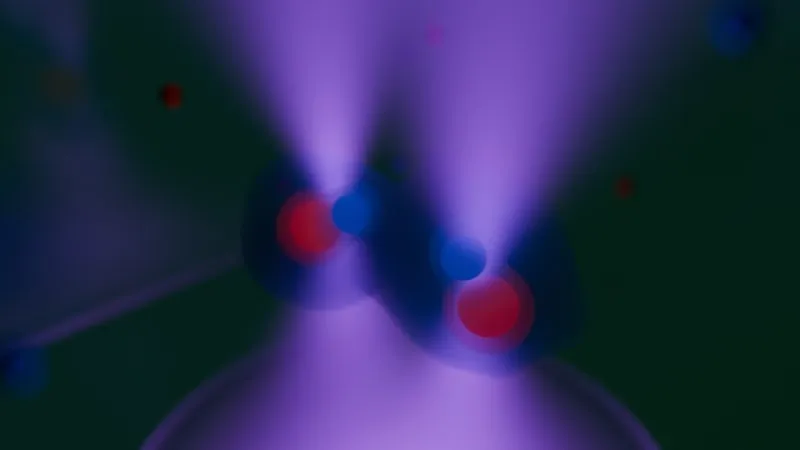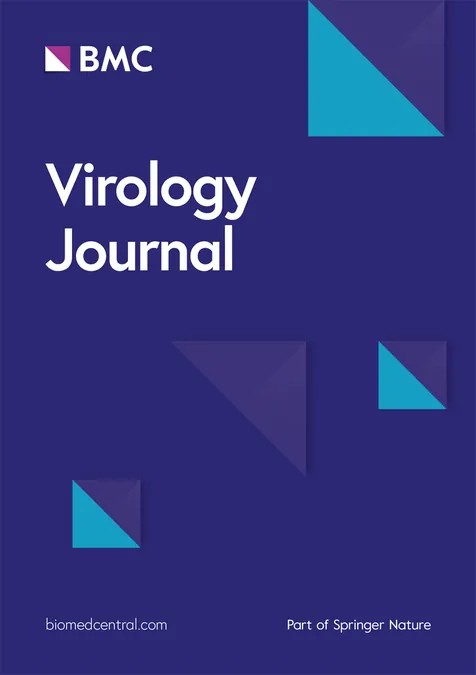
Revolutionary Breakthrough: Researchers Achieve Unprecedented Quantum Entanglement of Molecules
2025-01-17
Author: Wei
In a groundbreaking achievement, researchers at Durham University have unveiled long-lasting quantum entanglement between molecules, a remarkable feat that promises to revolutionize the fields of quantum computing, sensing, and fundamental physics.
This world-first demonstration employed advanced optical traps, known as ‘magic-wavelength optical tweezers,’ to create a stable environment conducive to sustaining entangled states. This capability is essential for the development of next-generation quantum technologies.
Understanding Quantum Entanglement and Its Technological Potential
Quantum entanglement, a core principle of quantum mechanics, occurs when two particles become interconnected, such that the state of one particle instantaneously influences that of the other, irrespective of the distance separating them. This phenomenon has withstood experimentation and validation, and it plays a critical role in numerous emerging technologies.
The implications for technology are vast:
1. **Quantum Computing**: Entangled states form the backbone of quantum computing, enabling qubits to perform computations at speeds unattainable by classical computers. 2. **Quantum Cryptography**: Entanglement fosters secure communication methods like quantum key distribution, which can instantly detect any eavesdropping attempts, ensuring the integrity of data transmission.
Significance of the Molecule Breakthrough
While entanglement has previously been achieved with individual atoms, extending this capability to complex molecules represents a pivotal advancement. Molecules possess structural intricacies and intrinsic properties—such as vibration and rotation—that pave the way for advanced quantum applications.
Professor Simon Cornish, who guided the study, commented on the significance of this breakthrough, stating, “Our results showcase extraordinary control over individual molecules. Despite the inherent fragility of quantum entanglement, we’ve managed to entangle two molecules via incredibly weak interactions and maintain that entanglement for nearly one second.”
The key to this success lies in the carefully crafted environment that the researchers developed to maintain coherence in entangled states over extended durations. By employing finely tuned laser light within the optical tweezers, the team achieved unprecedented precision in manipulating molecules, thereby unlocking avenues for more sophisticated quantum operations.
Dr. Daniel Ruttley, a co-author of the study, added, “Our findings hint at the immense possibilities of using molecules as foundational components for next-gen quantum technologies. The ability to maintain long-lived molecular entanglement could lead to the development of highly efficient quantum computers, advanced quantum sensors, and deeper insights into the quantum characteristics of complex materials.”
The Importance of Molecule Stability
This research not only achieved remarkable entanglement fidelity—exceeding 92%—but it also highlighted the vital role that stability plays in applications requiring prolonged measurement times and quantum information storage. The advent of long-lived quantum entanglement in molecules could dramatically enhance the precision of quantum sensing, stimulate research into complex quantum materials, and introduce innovative paradigms in quantum computation. Furthermore, it supports the emerging concept of ‘quantum memories’—devices capable of retaining quantum information for extended periods, which are crucial for sophisticated quantum networking.
This remarkable achievement is part of a broader progression in quantum science, signifying a significant leap forward in harnessing the power of molecules for advanced quantum technologies. The full spectrum of potential applications remains to be explored, promising a fascinating frontier in the quantum realm that could reshape our technological landscape.
Stay tuned as we follow these exciting advancements that could herald a new era in quantum technology!


 Brasil (PT)
Brasil (PT)
 Canada (EN)
Canada (EN)
 Chile (ES)
Chile (ES)
 Česko (CS)
Česko (CS)
 대한민국 (KO)
대한민국 (KO)
 España (ES)
España (ES)
 France (FR)
France (FR)
 Hong Kong (EN)
Hong Kong (EN)
 Italia (IT)
Italia (IT)
 日本 (JA)
日本 (JA)
 Magyarország (HU)
Magyarország (HU)
 Norge (NO)
Norge (NO)
 Polska (PL)
Polska (PL)
 Schweiz (DE)
Schweiz (DE)
 Singapore (EN)
Singapore (EN)
 Sverige (SV)
Sverige (SV)
 Suomi (FI)
Suomi (FI)
 Türkiye (TR)
Türkiye (TR)
 الإمارات العربية المتحدة (AR)
الإمارات العربية المتحدة (AR)